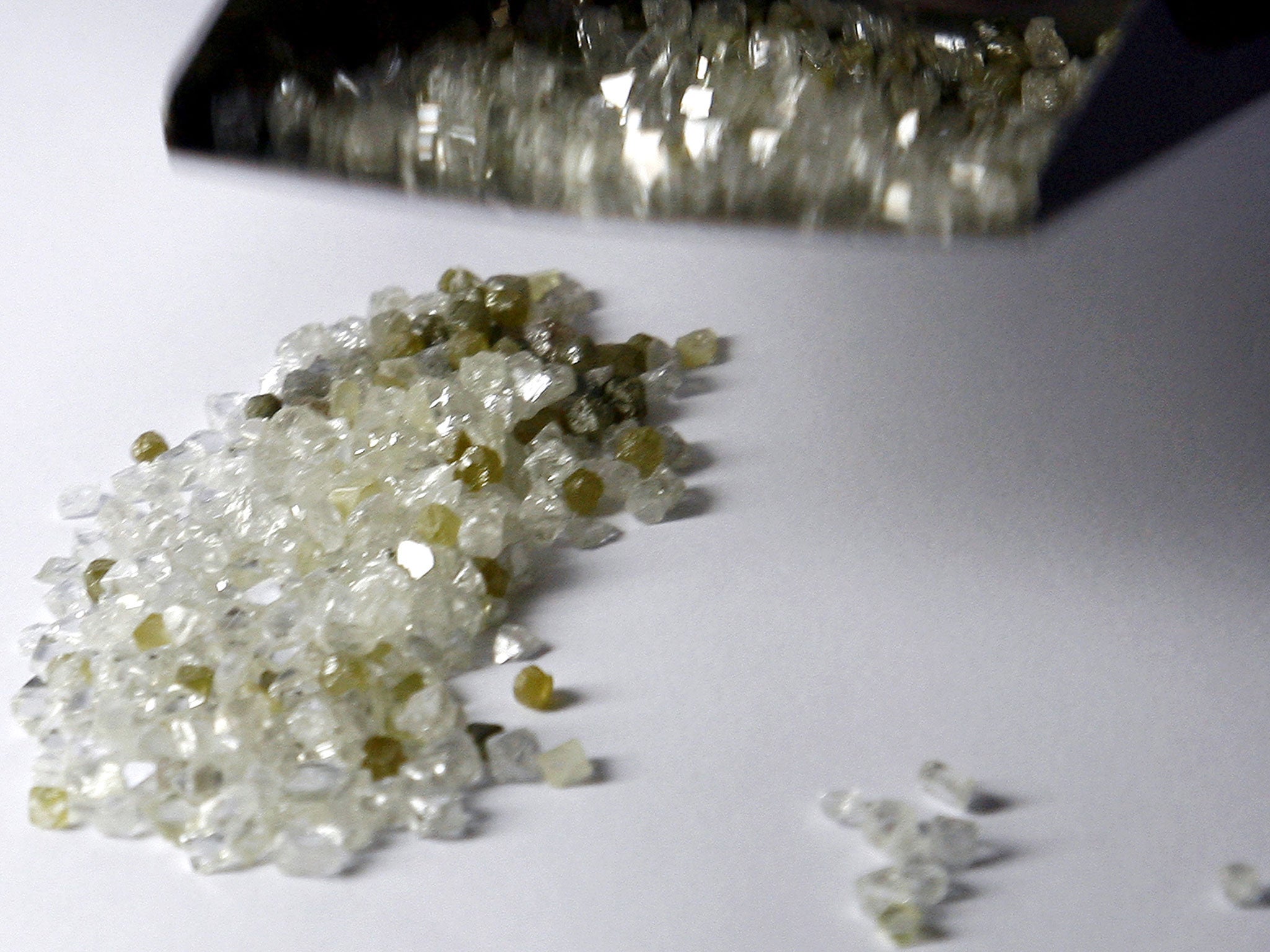Spanish police arrest first man for trade in Sierra Leone blood diamonds
The 64-year-old stands accused of forcing Sierra Leoneans to work, effectively as slaves, in the country’s diamond mines

A businessman has become the first to be arrested on suspicion of trading illegal blood diamonds, which helped to finance the Sierra Leone civil war – the conflict in the 1990s that left more than 50,000 people dead.
Michael Desaedeleer, a joint American and Belgian national, was detained on Friday at Malaga airport as he was about to board a flight to the US. Spanish police, acting on a request from Belgium under the European Arrest Warrant (EAW), alleged that “he led the extraction work in the [diamond] fields, at least in the weeks between December 1999 and January 2000.”
The 64-year-old stands accused of forcing Sierra Leoneans to work, effectively as slaves, in the country’s diamond mines, and of trafficking the diamonds to neighbouring Liberia. There, the then Liberian President, Charles Taylor, sold diamonds to finance the rebellion in Sierra Leone that had led to the 1991-2002 war.
In 2012, Taylor was jailed for 50 years by the International Criminal Court in The Netherlands for his role in the conflict.
At his trial, it transpired that Taylor had given Naomi Campbell a number of diamonds as a gift. The British model insisted that she was unaware that they were blood diamonds, describing them as “dirty-looking stones”.
The arrest of Mr Desaedeleer was greeted with delight by those who have campaigned to bring financiers alleged to be involved in the blood diamond trade to justice.
Alain Werner, director of Civitas Maxima, a Geneva-based group that works with the victims of war crimes, said: “This is a landmark case ... and it will help to raise awareness of ... the pivotal role played by financial actors in ... the trade of mineral resources that fuel armed conflicts in Africa and elsewhere.”
In an experts’ report to the United Security Council in 2000, it was alleged that Mr Desaedeleer contacted the rebel Revolutionary United Front (RUF) in 1999 while he was working for the son of the President of Togo.
Later that year, the report says, he and a US-based businessman agreed a deal with Foday Sankoh, the RUF leader, to broker rights to all of Sierra Leone’s gold and diamond resources for a decade.
“This is another significant step forward in our collective efforts at ensuring accountability for the crimes that occurred during the conflict in Sierra Leone. No one should be allowed to get away with participating in serious offences such as enslaving people and forcing them to mine for diamonds,” said Ibrahim Tommy, the executive director of the Centre for Accountability and Rule of Law in Freetown, the capital of Sierra Leone.
“This case will also help to shed light on the otherwise discreet drivers of the infamous blood diamond trade in Sierra Leone.”
Mr Desaedeleer’s arrest comes after years of campaigning by those that were enslaved during the civil war. A criminal complaint was first filed in 2011 against him by Sierra Leoneans in Brussels, which led earlier this year to the issuing of the EAW, and ultimately his arrest on Friday.
While the warrant specifies a short period in which Mr Desaedeleer is alleged to have run mines where enslaved Sierra Leoneans worked in the eastern Kono district, he is also alleged to have trafficked blood diamonds out of Sierra Leone.
Mr Desaedeleer has previously denied any wrongdoing, telling Newsweek in 2000 that he had a legitimate contract for exclusive mining and development of diamonds in RUF-controlled areas of Sierra Leone and saying all his actions were above board.
According to some estimates, the diamond industry in Sierra Leone was worth $125m (£81.2m) in 2000, much of which is believed to have been used to finance the rebellion. Mr Desaedeleer is now to be extradited to Belgium to face trial.
Join our commenting forum
Join thought-provoking conversations, follow other Independent readers and see their replies
Comments